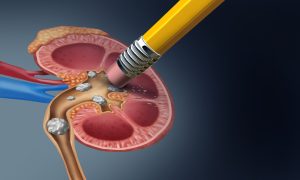Puberty refers to a period when our major organs and body systems mature. The process begins around 11 for girls, 12 for boys, and can take up to 4 years. It is a period of rapid physical development, hormonal changes, and identity formation. This article will explore the physical and emotional changes in boys during puberty, and inform parents on things that you should look out for your boys.

Figure 1: Puberty in Male
PSA: Medical Channel Asia (MCA) is now on Telegram! Join us here https://t.me/MedicalChannelAsia for daily reads and the latest updates at your fingertips!
What are the physical changes in a boy experiencing puberty?
The physical changes usually take place gradually from age 12 to 14. Some of the changes might happen at the same time, others might be a bit late.
- Height and muscle growth: Both boys and girls will grow rapidly during the years of puberty.
- Acne: This is a condition of the skin that shows up as bumps – most commonly on the face, neck, shoulders, upper back, and chest. It is usually caused by hormonal changes and should resolves by itself after puberty. If you are concerned, have a chat with your family doctor.
- Voice changes: Boys’ voice will get deeper. However, they might experience hoarseness in their voice for a few months before it eventually gets deeper.
- Hair growth: Body hair starts to grow around the pubic area, legs, armpits and on the face. This process could continue well into their 20s.
- Genital growth: Their testicles and penis will get bigger. It is normal for one testicle to be bigger than the other. Some boys worry about their penis size. However, sexual function, including the ability to have sex and father children, does not depend on penis size. Talk to a doctor if they are worried.
- Wet dreams: They may have wet dreams, where they ejaculate in their sleep. This is a normal part of growing up and could be the first sign of sperm maturity.
- Erections: Sometimes erections happen when they get nervous or excited. They can also happen for no reason at all, which can make them feel embarrassed. This is absolutely normal and should not be a cause of concern.
What are the emotional changes in a boy experiencing puberty?
Emotional changes in puberty could be as easy to notice as our physical changes.
- Moods and feelings: People will show strong feelings and frequently intense emotions. There could usually be wild mood swings in one day and unpredictable. It takes time for them to learn how to control and express emotions rationally.
- Identity: In their teenage years, boys and girls start to form a sense of self, so parental and school guidance is essential at this stage of their development.
- Romantics: Boys usually start to express interest in girls and could engage in sex. Sex education is crucial in preventing unplanned pregnancy and sexually transmitted diseases.
- Decision making: Boys and girls will become more independent in thinking and decision making.
What should parents look out for?
Parenting children through puberty is hard. Here are some handy tips:
- Healthy diet: Nutrients are extremely important in children’s puberty. A balanced diet could help them grow faster and stronger and prevent many chronic diseases in the future.
- Give them privacy: As they are growing up, they would prefer more spaces for themselves and make independent decisions. Stepping back a little could make both you and your boy happier.
- Conversations: Communication is always the key. Talk to them as if they are your friends, and convey advice or life tips along the way.
- Pay attention to warning signs: Boys experiencing puberty could be more adventurous than girls. With access to the internet, they are frequently exposed to cigarettes, alcohol, and/or illicit drugs. If you suspect your children are involved with any of those, talk to them directly but patiently, and seek medical help if needed.
- Consult a doctor if your children do not have any signs of puberty when they turn 14. Some people enter puberty late naturally, but there could be an underlying medical condition as well.
Conclusion
Puberty refers to the period of time when children starts to mature both physically and emotionally into young adults. This process usually starts later in boys as compared to girls. Certain physical changes include enlargement of the testicles and penis, as well as vocal changes. As for emotional changes, teenage boys may start to experience more moods and feelings.
Find out more about puberty in girls in our article next week!
Did you find this article useful and informative? Do you have more questions regarding this topic, or any other topics related to medical and healthcare? Send your questions to editor@medicalchannelasia.com now!













